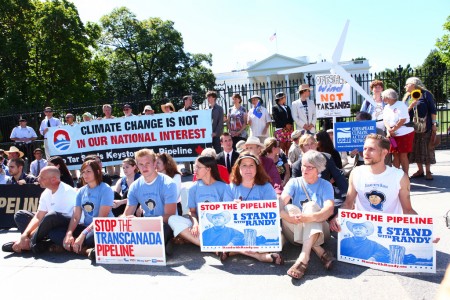Every year, I see the militarism and nationalism that are linked to Remembrance Day, and every year I find them at least partly objectionable. The twentieth century should be taken as a comprehensive demonstration of the immorality of war, and how dangerous it is when people adopt nationalist and militarist ideologies. Putting on a poppy and saluting the people who fought for ‘our’ side in various conflicts seems to be missing the point.
Rather than celebrate the people who happened to fight on ‘our’ side, it seems more suitable to recognize that virtually all wars have involved appalling crimes committed by the soldiers on both sides of the conflict. We need only think about the firebombing of German and Japanese cities during the second world war (to say nothing of the atomic bombings of Hiroshima and Nagasaki) to realize that nobody comes away from major conflicts with an unblemished moral record. The only justification for such crimes is that it seemed necessary at the time to avert a still-greater evil.
Of course, many histories of war are written with retroactive justifications that do not accord well with a dispassionate examination of the historical evidence. Germany is the only country in Europe where the role of the state in perpetuating the Holocaust is unambiguously recognized and taught. People in many other countries were complicit. The trains to the death camps originated in many places, and everyone who was involved in the system bears some guilt for it. The same is true with regard to the atrocities in Rwanda and the former Yugoslavia – in Russia, and China, and Congo, and every other place where human beings have engaged in or tolerated the systematic abuse and slaughter of their fellows. I personally find it deeply troubling that there are so many people who remain unapologetic about the crimes committed by ‘their side’ in the course of wars in which they participated. ‘My country right or wrong’ is one of the most damaging and dangerous mindsets people can adopt.
I think it would be much more appropriate to devote Remembrance Day to marking the suffering of all the civilians who have been caught up in wars. That includes people who were the incidental victims of military campaigns, dying either directly from weapons or indirectly from starvation or disease. It also includes the millions of victims of the intentional genocides of the twentieth century and before – crimes that could not possibly have been committed without the willingness of human beings to commit acts of violence upon the orders of their states. We should feel disgusted and angry about how easily people can be convinced to fight for states that are undertaking such programs, and actively involved in building institutional and cultural defences against such things happening again.
In that spirit, I think it would also be suitable to use Remembrance Day to celebrate those unpopular figures who have had the courage to refuse to fight – and those who had the even greater courage to speak out publicly against unjust wars. Conscientious objectors are people who have had the moral insight necessary to realize what an appalling thing wars are, and who have had the personal courage to refuse to fight. They have done so even when that choice has been harshly criticized by the other members of their societies and frequently punished by prison or worse. This has sometimes been equally true for people who have taken a public stance against war, at a time when their societies have been progressing toward it. Soldiers may deserve praise for their courage, but so do people like Dietrich Bonhoeffer – a German clergyman who spoke out against Nazism and paid for it with his life.
The world would surely be a better place if more people refused to get caught up in the drumbeat and euphoria of war. People are dangerously quick to do so, and that is something we must all guard against.
Related:

